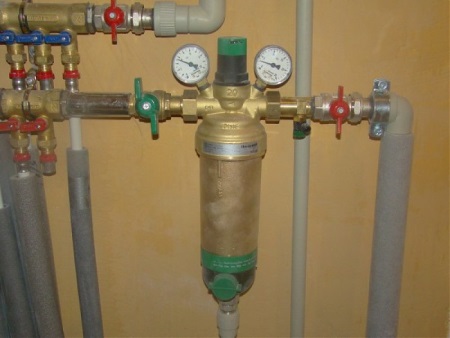Filters for water heaters and boilers
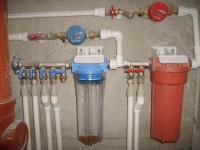
These days, water heaters can be seen in many apartments. They provide residents with hot water, thereby increasing the comfort of living and allowing not to depend on a centralized water supply. For some people, such as owners of a private house or a country house, it is impossible to get hot water without the purchase of a boiler or other water heating device. But for such a device to work for a long time without breakdowns, before installing it, you should take care to have filters that will purify the water entering the device.
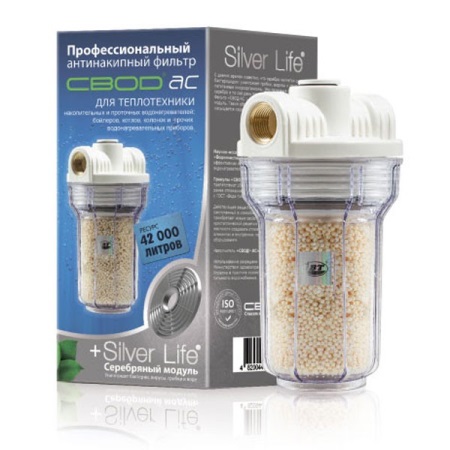
Why are used for water purification?
The need for the use of filters in all appliances in which water is heated, due to the quality composition of the liquid in the water supply networks. First and foremost, this refers to the water hardness, which is affected by the content of compounds such as magnesium and calcium salts. Filters also help to remove various impurities from the water, including pathogenic bacteria, viruses and various foreign substances.
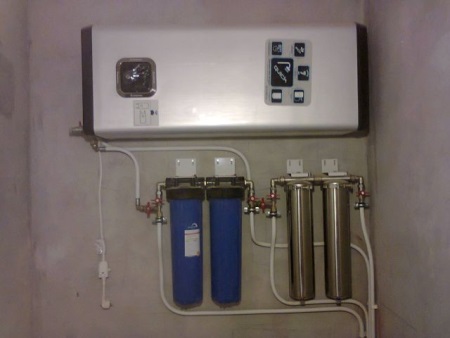
Do they protect against limescale?
Note that the installation of a filter through which the water that enters the water heater tank as a result does help protect the appliance from untimely wear and tear of its parts due to scale buildup. The scaling that has appeared on the internal elements of the heaters affects the heat conductivity and efficiency of the appliances. Due to the layer of scale, the period of water heating is prolonged, resulting in increased energy consumption.
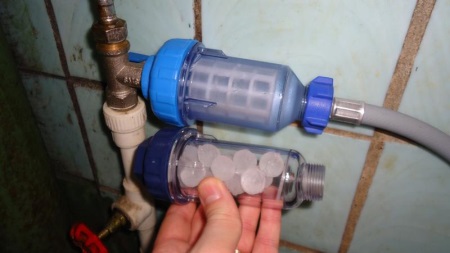
Limescale also increases the risk of burnout of the heating element (if an electric water heater is installed) and gives the water an unpleasant smell and taste.
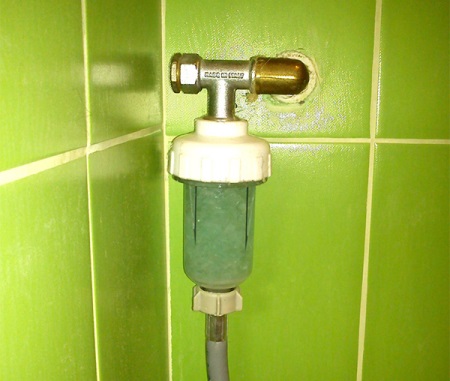
The stages of scale formation
Limescale is formed by heating hard water. In the first stage of its formation, it has the appearance of a light lime scale. It interferes with the conduction of heat, so the water in the appliance begins to heat longer.
If you do not clean the scale at this stage, the layer of scale will increase and become quite dense. This will affect fuel consumption and timing of water heating. Sometimes at this stage water begins to emerge from the boiler, in which there are pieces of scale. When you see them, the appliance must be cleaned as a matter of urgency.
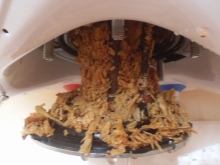
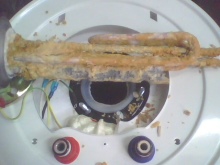
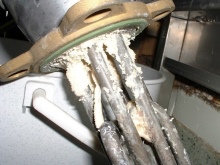
If for some reason you have missed or ignored the previous stage, the deposition of limescale will continue with the formation of limescale. In this third stage, the heating element will be completely covered by such a stone, so it will not only stop transferring heat to the water in the tank, but also overheat, as a result of which it will burn out.
Types
In order to clean the water flowing inside the heating device, it is possible to install a filter in front of the equipment for:
- Deep cleaning. It is designed to catch particles of sand, rust and other small debris. The place of installation of such a filter is the starting point of the water supply, before the water meter. Such a filter should be flushed regularly once a quarter.
- Fine cleaning. Its function is to remove salts, chlorine and other substances from water. Such a filter can be single-function (simply purify water from harmful impurities) or multifunctional (in such a filter an ionic exchange with precipitation of harmful compounds). For fine cleaning can be used woven filter (it has a cloth winding, the darkening of which signals the need to replace the cartridge) or a mineral filter (inside such a filter there are mineral crumbs, the darkening of which is understood that the cartridge should be replaced).
- Biological purification. It is one of the varieties of filters that perform fine purification. Its installation is recommended when water from the well is supplied to the water heater. Such a filter is a multistage system, in which mechanical purification is carried out sequentially, chlorine is removed (in the charcoal cartridge), fine purification is performed, iron salts and heavy metals are removed, as well as viruses, bacteria and odors.
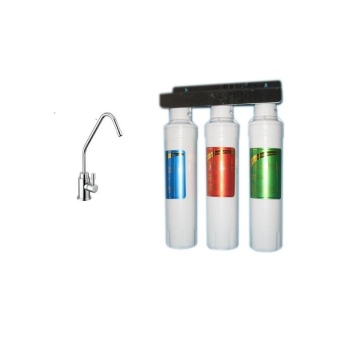
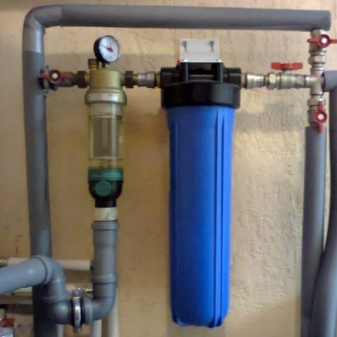
Depending on the cleaning mechanism, the following types of filters can be installed in front of the water heater.
Magnetic filter
It copes well with reducing the hardness of the incoming water in the boiler and does not need to replace the cartridges. This filter is mounted at a distance of 1.5 meters from the heater or further. For installation a special coupling nut is used.
Some filters can be installed directly in the pipeline to increase the efficiency of water filtration. The work of such a filter is based on the creation of a magnetic field that changes the ionic ratio of salts in the water. As a result, the salts form a safe insoluble sediment.
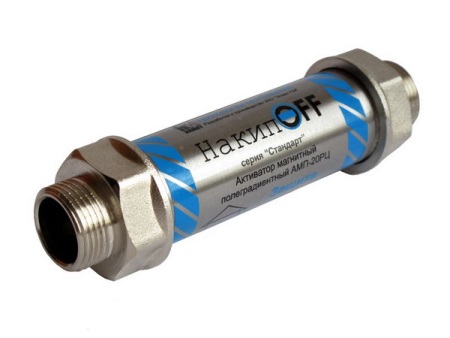
Polyphosphate filter
Such a device contains food-grade polyphosphates, which are dosed into the water based on the water flow. The saturation of water with sodium polyphosphate forms a film that prevents limescale from settling. Such a filter is inexpensive and available in a large range.
Among its disadvantages are a limited period of use (about 6 months), as well as the need for periodic addition of filler.
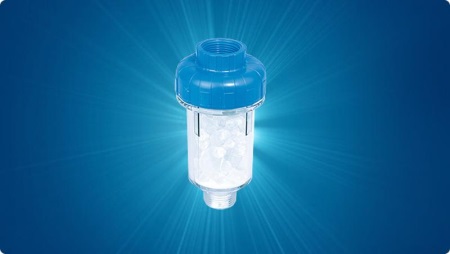
Filter with ion exchange resins
This is a modern and very effective anti-scale filter that contains a safe resin inside. Once released into the environment, it decomposes completely.

In the video below you can see how exactly the popular polyphosphate scale filter from ATLAS FILTRI.
Rinsing the appliance before installing the filters
If the water heater has been operating for a long time without filtering the incoming water, one of the steps in the installation of filters should be to flush its system with special products.
Such products are represented by highly effective non-abrasive liquids, which are not harmful to the parts of water heaters. They are sold complete with flushing systems, which are connected directly to the heat exchanger. After heating the reagent to the desired temperature in the installation turn on the circulation mode and wait until the deposits are dissolved. After that, the reagent is drained, the heat exchanger is flushed and the unit is disconnected from the water heater.
